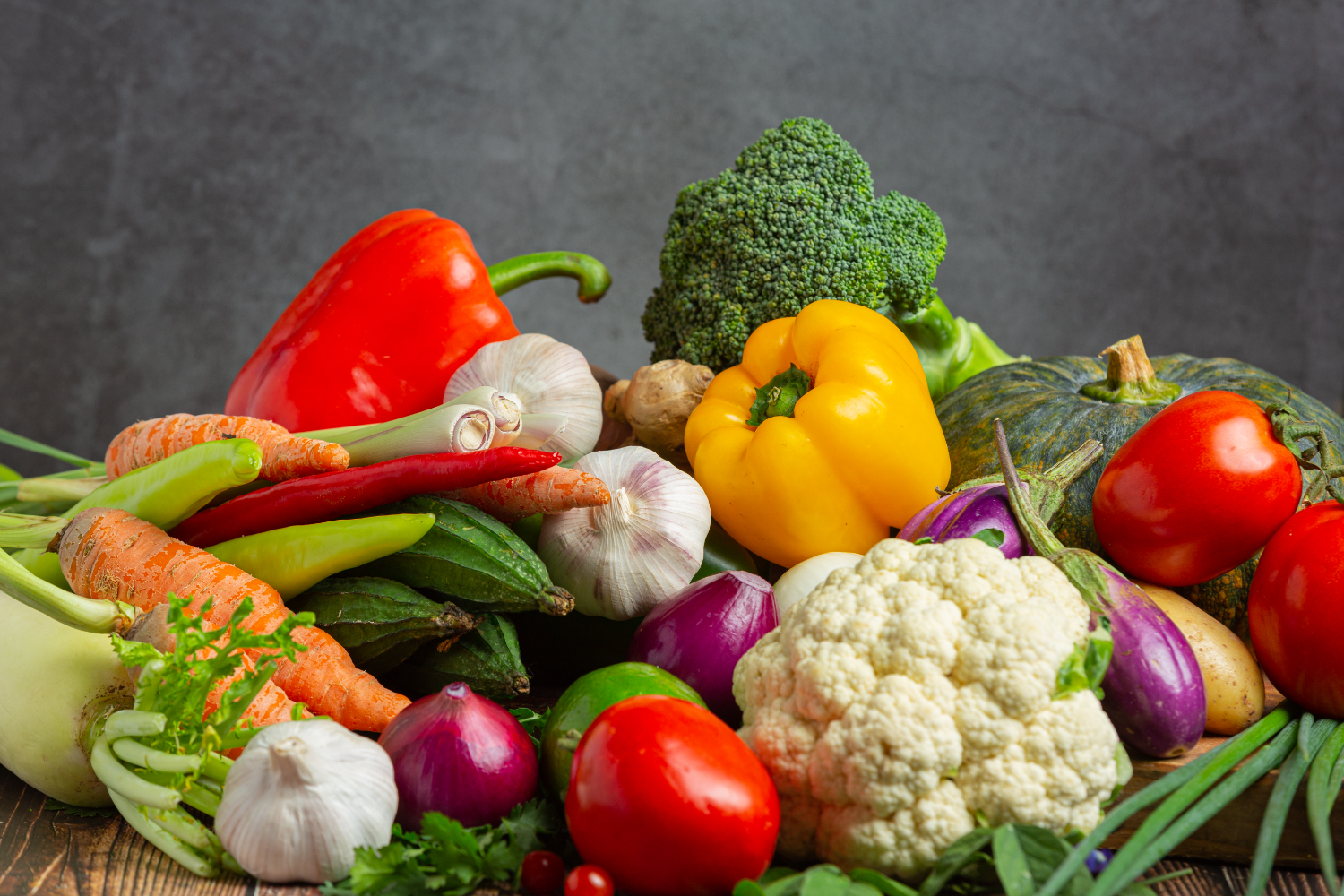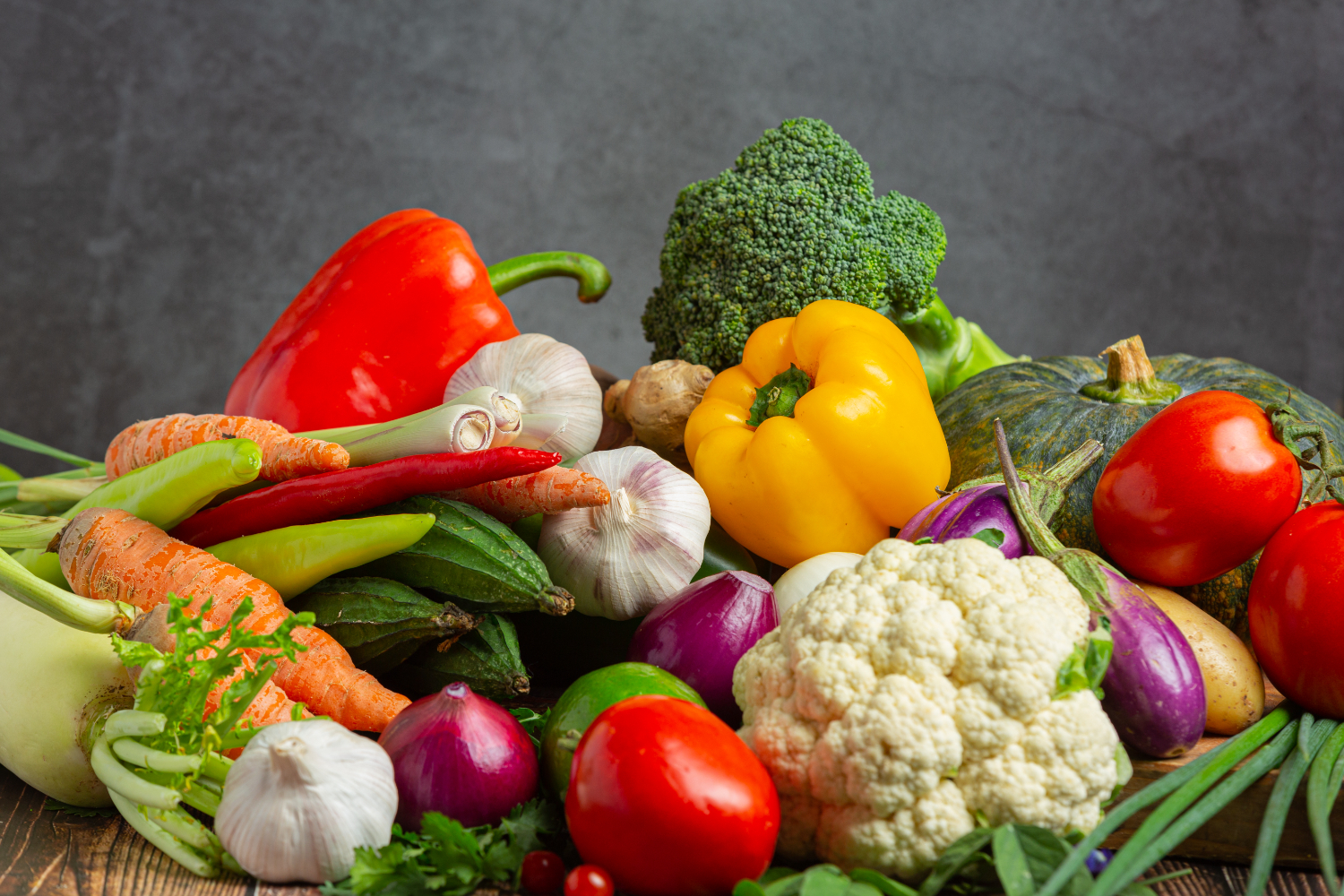
The Nutritional Powerhouses
Vegetables are packed with essential vitamins, minerals, and fiber, making them crucial for maintaining a healthy diet. Here's a breakdown of why different vegetables are important for our well-being:
- Leafy Greens: Spinach, kale, collard greens, and other leafy greens are rich in vitamins A, C, K, and several B vitamins. They also provide antioxidants that help fight inflammation and support overall immunity.
- Root Vegetables: Carrots, sweet potatoes, beets, and radishes are excellent sources of fiber and beta-carotene, which the body converts to vitamin A. These nutrients help maintain eye health and boost the immune system.
- Cruciferous Vegetables: Broccoli, cauliflower, Brussels sprouts, and cabbage are part of the cruciferous family, known for their cancer-fighting compounds like sulforaphane.
- Fruity Vegetables: Tomatoes, cucumbers, peppers, and zucchinis are botanically fruits but are classified as vegetables due to their culinary use. They are hydrating and provide a range of antioxidants and vitamins like vitamin C.
The Benefits Beyond Nutrition
Incorporating vegetables into your diet goes beyond just nutritional advantages. Here are some other reasons why they should be a key part of your meals:
Weight Management: Vegetables are low in calories but high in fiber, which helps you feel full longer. This makes them an excellent choice for anyone looking to manage their weight without sacrificing taste.
Digestive Health: Fiber, found in abundance in vegetables, supports digestion and prevents constipation. Eating a variety of fiber-rich vegetables is one of the best ways to maintain a healthy gut.
Heart Health: Many vegetables, such as leafy greens, beets, and avocados, are known to help lower blood pressure, reduce cholesterol, and improve blood circulation, making them essential for cardiovascular health.
Mental Clarity: Nutrients in vegetables, particularly those with antioxidants, contribute to better cognitive function, reducing the risk of cognitive decline as we age.
Sustainable Eating: A Veggie-Friendly Choice
Eating more vegetables also aligns with sustainability goals. Unlike animal-based products, vegetables have a much lower environmental footprint in terms of water usage, greenhouse gas emissions, and land requirements.
Lower Carbon Footprint: Vegetables require far fewer resources to grow compared to animal products, significantly reducing the overall carbon footprint of a plant-based meal.
Biodiversity: Growing a variety of vegetables promotes agricultural biodiversity, which is essential for maintaining healthy ecosystems and resilient food systems.
Local and Seasonal Produce: By eating local and seasonal vegetables, you can further reduce your carbon footprint while supporting farmers in your community.
How to Incorporate More Veggies Into Your Diet
It's easy to add more vegetables to your meals with a few simple ideas:
- Smoothies: Blend spinach, kale, or cucumbers into your morning smoothie for a nutritious boost.
- Salads: Experiment with different greens and toppings like avocado, nuts, and seeds to create hearty and filling salads.
- Stir-Fries and Soups: A great way to combine various vegetables into one dish is by making a stir-fry or vegetable soup.
- Veggie Snacks: Keep sliced vegetables like carrots, celery, or bell peppers handy for quick and healthy snacks.
- Roast or Grill: Roasting vegetables such as Brussels sprouts, sweet potatoes, or cauliflower brings out their natural sweetness and adds flavor.
Conclusion
Vegetables are not just a side dish but a core component of a balanced and sustainable diet. By prioritizing vegetables, you not only enhance your health but also contribute to a more sustainable and eco-friendly food system. Whether you're a seasoned veggie lover or just starting to explore their benefits, there's no better time to embrace the variety, flavor, and goodness they bring to your plate.
So, the next time you're planning a meal, make sure vegetables take center stage—your body, your taste buds, and the planet will thank you!



